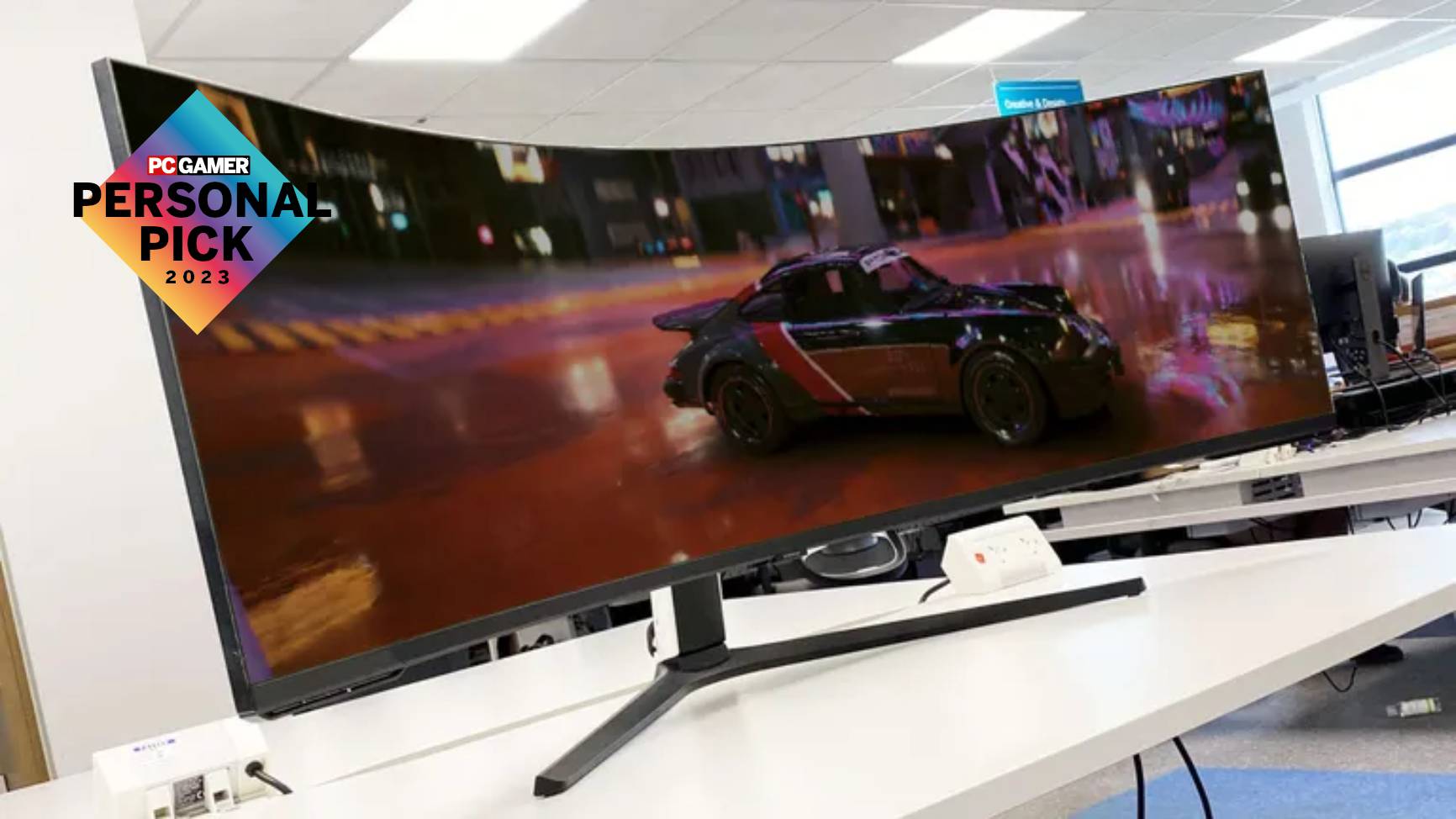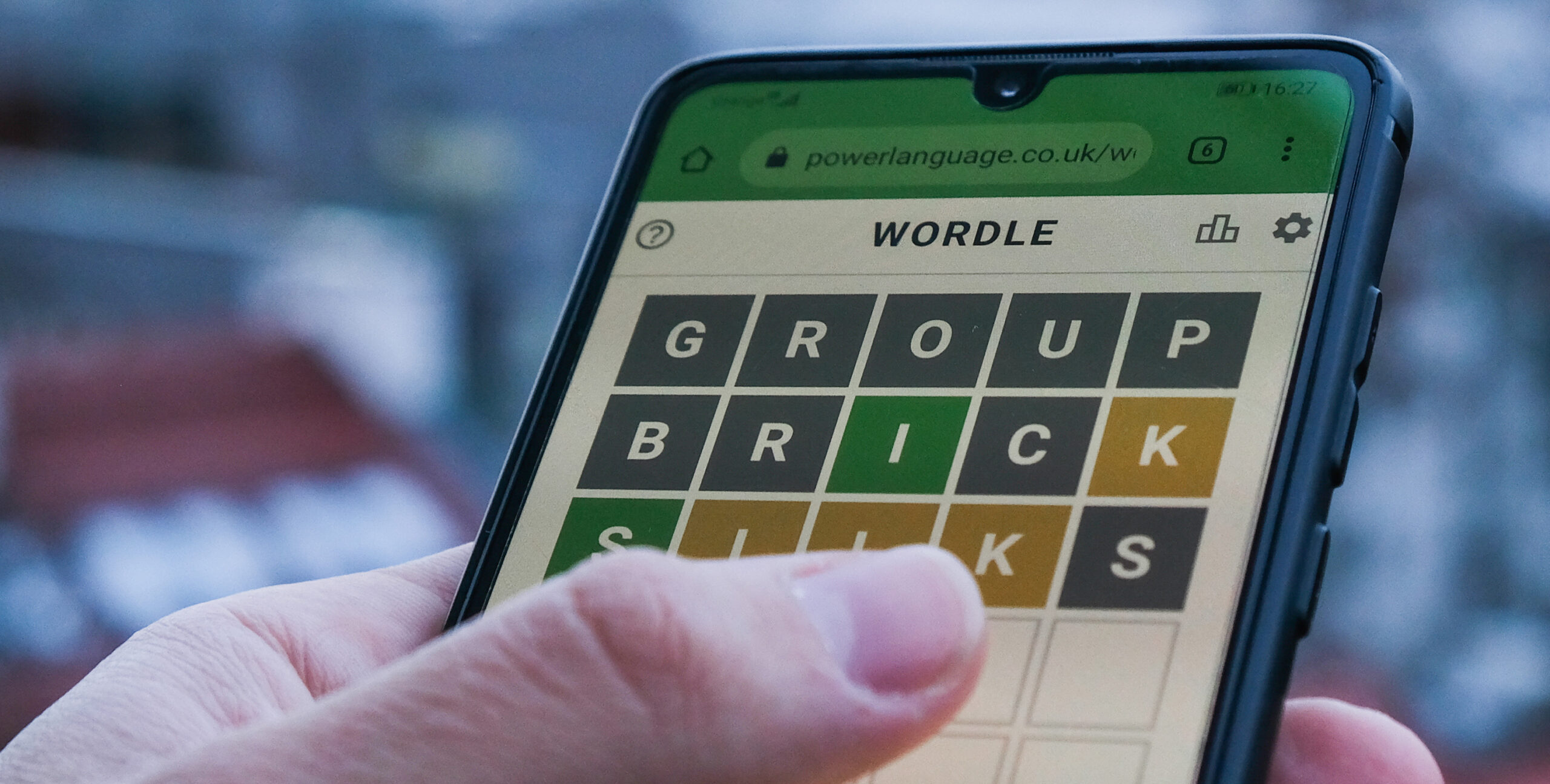Choosing a $2,000 gaming monitor as my pick for 2023 isn’t exactly democratic, even if the monstrous Samsung Odyssey Neo G9 G95NC is already $500 cheaper than when I reviewed it earlier this year. But it is one of those rare cases where a premium priced product gives you something genuinely special.
At 57 inches, the G95NC is a beast. And the problem with big monitors is typically fat pixels. That’s why 4K TVs don’t make great desktop monitors. Sure, you get a lot of sheer display panel for your money. But at ‘normal’ monitor viewing distances, the sub-100 DPI pixel density of a big 4K TV is awfully ugly.
Text looks blocky and blurry even on TVs with the correct subpixel structure. It’s even worse with OLED panels and their weird and wonderful RGB subpixel arrangements.
Moreover, you don’t get any additional desktop real estate to work with over a smaller 4K monitor. And generally the crispness, the sharpness, the image detail suffers.
Sure, it’s all dandy viewed from 10 feet away, which is what TVs are designed for. But up close as a monitor? Not so much. Which is where the Samsung Odyssey Neo G9 G95NC slaps. It’s basically two 32-inch 4K monitors welded seamlessly together.
That means the pixel density is exactly the same as a 32-inch 4K monitor, which I happen to think is an excellent compromise between visual sharpness and frame rates. At least, I do on a 32-inch panel.
(Image credit: Future)
With this Samsung, it’s a bit more complicated. With the dual-4K resolution comes literally twice the GPU load of 4K. And, let’s be honest, plain old 4K is demanding enough for even the most powerful graphics cards. Dual-4K is a bit of a nightmare.
So, to be clear, for gaming purposes, you’re going to need at least an AMD Radeon RX 7900 XT or Nvidia RTX 4080, and preferably an RTX 4090. But then if you can afford this monitor, you can probably afford one of those GPUs.
(Image credit: Future)
Screen size: 57-inch
Resolution: 7680 x 2160
Brightness: 420 nits “typical”
Color coverage: 95% DCI-P3
Response time: 1ms
Refresh rate: 240Hz
Contrast ratio: 2500:1
Features: VA panel, adaptive sync, 1x DisplayPort 2.1, 3x HDMI 2.1, USB-C hub, 1000R curve
Price: $2,499 | £2,199
The slight catch is that even the fastest GPU out there—and thus the one you’d think would be the best fit for this Samsung—can’t actually hit its full 240Hz refresh. Nvidia has yet to support DisplayPort 2.0, so its GPUs are limited to 120Hz at dual-4K.
Honestly, that’s an academic shortcoming given that even with an RTX 4090 you’re not going to be hitting 200+ fps in Cyberpunk, or whatever, at dual-4K resolution.
Anyway, we’re slightly deviating from the point, which is how stunning this thing is. Once you’ve experienced high-DPI visuals on such a large scale, well, there’s kind of no going back. Everything else looks either miserably small or blurry and blocky.
It’s also a relief to find that Samsung has basically sorted all the issues that blighted its other high-end mini-LED monitors. Oh yeah, this isn’t an OLOED panel. It has VA LCD tech and fully array local dimming with 2,392 zones.
(Image credit: Samsung)
All the weird strobing, the backlight zones obviously popping on and off, all that nonsense has been solved for this display. So you get genuine HDR performance without all the clumsiness of previous Samsung mini-LED displays.
(Image credit: Future)
Best OLED gaming monitor: So much contrast
Best gaming monitor: Pixel-perfect panels for your PC
Best high refresh rate monitor: Screaming quick screens
Best 4K monitor for gaming: When only high-res will do
Best 4K TV for gaming: Big-screen 4K PC gaming
To be sure, in terms of lighting control a per-pixel OLED panel is still far superior. But show me an OLED gaming monitor with this pixel density at any size, let alone this scale. They don’t exist.
Admittedly, the first 32-inch 4K OLED gaming panels should be with us by mid 2024. And TCL has announced a full 8K panel that should be with us by the end of 2024 that will offer comparable pixel density. However, for all-round PC usage as opposed to pure gaming, OLED still has plenty of shortcomings, not least of which are burn-in and limited full-screen brightness.
Anyway, those monitors are all promises for tomorrow. The Samsung Odyssey Neo G9 G95NC is here today. And it’s totally awesome.











